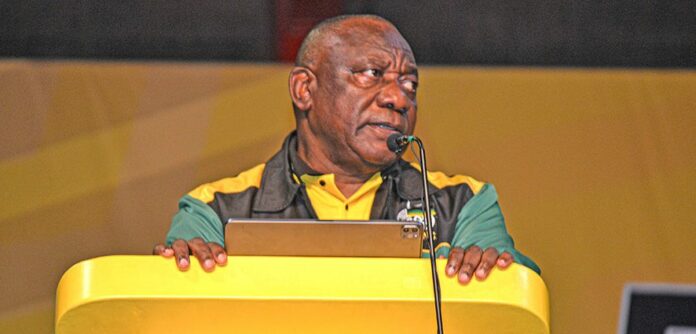By Naledi Ngqambela
The question to be asked is whether the cabinet reshuffle by President Cyril Ramaphosa will resolve any of our crises.
While the country expected extensive changes, this has turned out to be a minor reshuffle with little significant changes.
The long-awaited cabinet reshuffle came when South Africa was facing a grim moment with several socio-economic challenges and political instability – the biggest being the rolling blackouts that have been affecting our economy.
While many of us may argue about how fit for purpose the new ministers are, and their ability to deliver and stick to commitments outlined in the State of the Nation Address and Budget Speech in February, South Africans will be closely monitoring the performance of new Minister of Electricity, Kgosientsho Ramokgopa.
This is likely to have major implications on ANC’s victory or decline in 2024.
Not only will the performance impact on the ruling party, but it will certainly impact negatively on the country’s overall outlook.
As widely known, the energy crisis impacts economic growth and investment prospects. Persisting rolling blackouts destroy businesses and compromise the production of food and provision of social services.
It has been reported that the electricity crisis costs the economy an estimation of R899-million a day. Surely this is the most worrying factor.
In his opening remarks during his announcement, Ramaphosa said: “The purpose of the changes is to ensure that the government is properly capacitated and directed to give effect to the commitments made in the State of the Nation Address and Budget Speech.
“We have said that the people of South Africa want action, they want solutions, and they want government to work for them.”
Following this, what Ramaphosa and his administration do leading up to the general elections in 2024 will certainly make or break the ruling party.
The quality of cabinet Ramaphosa has will certainly determine the direction and outlook of our country socially and economically for the next coming years.
In his January 8 statement, the president unveiled that 2023 is the year for decisive action to advance people’s interests and renew the movement.
I am of the view that the success of this statement solely lies on his ability to appoint cabinet ministers who are capable and committed to solving South Africa’s mounting crises.
Looking at the changes to this national executive, one is left with an impression that this is perhaps another one of Ramaphosa’s theatrics.
When he commenced his presidency in 2018, he promised to reduce the size of the national executive and realign government departments. He reiterated the same in his 2023 address.
However, all he has done is simply widen and expand his cabinet. The size of cabinet has ballooned over the years – during former president Jacob Zuma’s presidency and now in Ramaphosa’s tenure.
Even with this increase in ministries, there has not been anything translating to concrete changes to the lives of South Africans.
Instead, the greater the cabinet size, the more financial implications this has on the already suffering taxpayers. Considering this, will we ever see a less-bloated cabinet in the “new dawn” that was promised to South Africans?
The build-up to this reshuffle presented an opportunity for Ramaphosa to redeem the confidence many citizens have lost in his this ability to act on his promises since he rose to power.
South Africans were still hopeful that the president would show his strength and boldness and announce sweeping changes. But they were left disappointed and full of despair more than anything.
I was particularly disappointed that some departments were left as they were. One concerning factor is the shift of Dr Nkosazana Dlamini-Zuma from Cooperative Governance and Traditional Affairs (Cogta) to the Presidency, to assume responsibility for women, youth, and persons with disability.
Youth unemployment continues with at least 8.9-million young people not in employment, education, or training. South Africa’s unemployment is a ticking time bomb.
In many instances, young people have said that those in power are disconnected from the realities of what it is like to be a young person in this country. I do not think a 74-year-old Dlamini-Zuma will understand these realities faced by young people.
I think about how the state, justice system and the police have failed women in this country, considering the scourge of gender-based violence. Will the minister manage this crisis? She could redeem herself if she makes a success of this department.
I do, however, need to commend Ramaphosa for the appointment of the new Cogta Minister, Thembi Nkadimeng.
Her wealth of experience, having been a councillor, Polokwane mayor, and later the president of the South African Local Government Association, placed her in serious contention for the portfolio.
The ANC is facing the reality of a coalition government in 2024. One would have hoped that following the election of the new national executive committee (NEC), crucial matters of socio-economic development would have been treated with urgency.
However, I am of the view that the NEC does not have a sense of urgency required to deal with the real crises facing this country.
We need a new way of thinking and an innovative strategy to create solutions and policies that South Africans will resonate with.
• Ngqambela is a member of the Rivonia Circle
Follow @SundayWorldZA on Twitter and @sundayworldza on Instagram, or like our Facebook Page, Sunday World, by clicking here for the latest breaking news in South Africa. To Subscribe to Sunday World, click here




